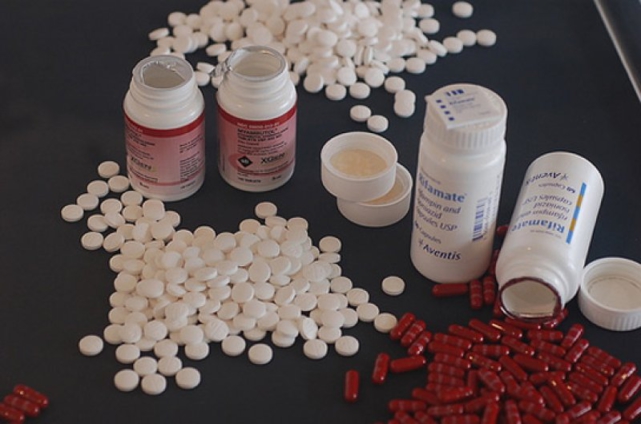A new patient-friendly Tuberculosis (TB) preventive therapy will soon be rolled out in Ghana and 4 other high-burden TB countries at an affordable price.
This is expected to reduce the number of pills needed for TB treatment from 9 to 3 in a week.
Ethiopia, Kenya, Mozambique, and Zimbabwe are the remaining countries to receive the fixed-dose combination treatment at a cost of US$ 15.
This new TB treatment regime is being rolled out by the International Drug Purchase Facility (Unitaid), the President’s Emergency Plan For AIDS Relief (PEPFAR) and the Global Fund to Fight AIDS, Tuberculosis and Malaria.
Enough treatment for up to 3 million patients is expected to be made available for eligible countries this year.
The provision of the new treatment will contribute towards the United Nations High-Level Meeting (HLM) target to provide TB treatment to at least 30 million people by 2022.
Director of World Health Organization’s (WHO) Global TB Programme, Dr Tereza Kasaeva, said the WHO welcomed the new fixed-dose combination TB preventive treatment that would reduce the pill burden for people with TB infections while enabling better adherence and outcomes.
He said with the new regime, the WHO looked forward to a surge in action from national programmes supported by donors and partners to scale-up access to TB preventive treatment and reach the UN High-Level Meeting targets.
Director of the Programme Division at Unitaid, Mr Robert Matiru, said the pills’ ceiling price agreement negotiated with Macleods was another example of its commitment to ensure that effective, quality-assured and affordable TB preventive therapies were made available in low and middle-income countries.
He said Unitaid we would ensure a healthy market for all manufacturers that wished to develop and commercialize rifapentine-based products.
People with TB infection, often dubbed latent, have no symptoms, are not contagious and most do not know they are infected.
Without treatment, five to 10 percent of people will develop active TB, the form which makes people sick and can be transmitted from person to person.
Tuberculosis is an infectious bacterial disease that mainly affects the lungs, it spreads when an infected person coughs or sneezes.
In 2019 alone, 10 million people fell ill from TB, close to 1.5 million people died from TB and presently, over 95% of people living in low- and middle-income countries are living with TB.
Latest Stories
-
Africa Development Council urges ECOWAS action amid Togo’s constitutional crisis
2 hours -
Situate power sector challenges within the context of the 4th Republic – Jantuah
2 hours -
Empowering Youth through IT Education: IT For Youth Ghana College leads the way
2 hours -
Trump criminal case: Full 12-person jury seated in Manhattan
3 hours -
Israel Gaza: US again warns against Rafah offensive
3 hours -
Man arrested in Poland over alleged Russia plot to kill Zelensky
3 hours -
Over 100 arrested as US college Gaza protest cleared
3 hours -
Justmoh Construction begins work on dualization of Takoradi-Agona Nkwanta road
3 hours -
MGL visits Dumor family following passing of Mawuena Trebarh
3 hours -
In Pursuit of Peace and Unity: Interfaith Leaders Promote Dialogue – Chief Doli-Wura to Africa Union
4 hours -
TEWU raises concern over quality of food served in SHS
5 hours -
Ghanaian students gear up for Robotics World Championship
5 hours -
Political interference makes public sector managers appear incompetent – Dr Manteaw
5 hours -
Police arrest truck driver alleged to have caused train crash
5 hours -
CAF Confederation Cup: Dreams FC depart to Cairo ahead of semis first leg against Zamalek
5 hours

